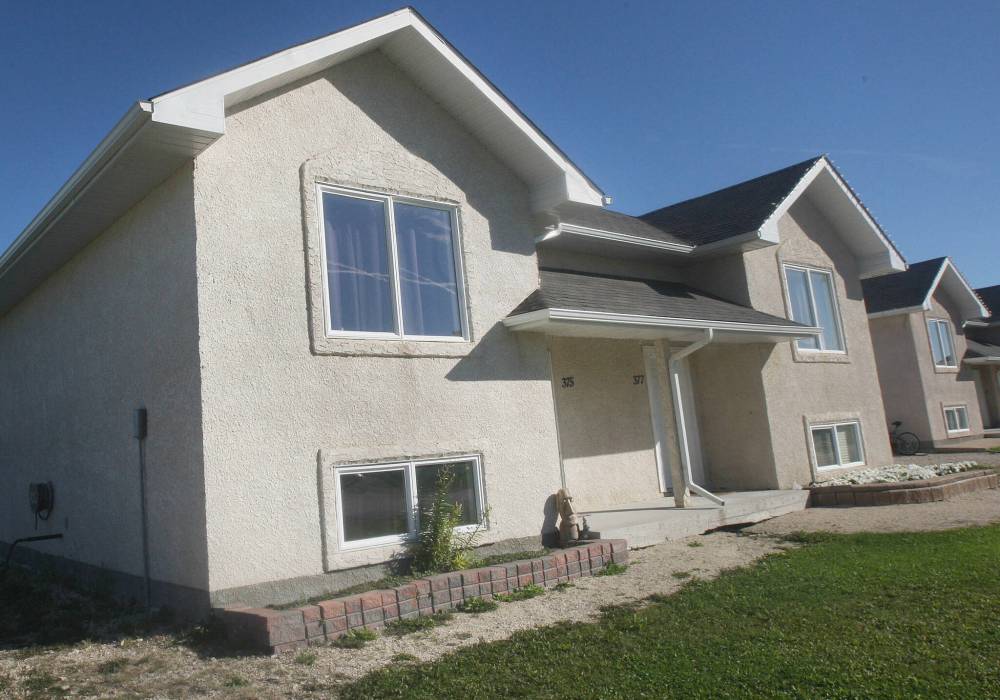City looks to duplexes, triplexes to ease housing shortage
Advertisement
Read this article for free:
or
Already have an account? Log in here »
To continue reading, please subscribe:
Monthly Digital Subscription
$19 $0 for the first 4 weeks*
- Enjoy unlimited reading on winnipegfreepress.com
- Read the E-Edition, our digital replica newspaper
- Access News Break, our award-winning app
- Play interactive puzzles
*No charge for 4 weeks then billed as $19 every four weeks (new subscribers and qualified returning subscribers only). Cancel anytime.
Read unlimited articles for free today:
or
Already have an account? Log in here »
A city hall committee is set to vote Thursday on proposed zoning bylaw changes which are intended to spur and speed up construction of higher-density homes in some Winnipeg neighbourhoods.
The rapid zoning bylaw amendments would make it easier to build duplexes or triplexes in mature neighbourhoods, as long as certain requirements are met, in a bid to ease the city’s housing shortage and increase affordability.
Those types of homes already exist in mature areas, such as Elmwood or River Heights, said property and development committee chair Coun. Sherri Rollins.
JOE BRYKSA / FREE PRESS FILES In a bid to ease Winnipeg’s housing shortage and increase affordability, a city hall committee is set to vote Thursday on proposed zoning bylaw amendments which would make it easier to build duplexes or triplexes in mature neighbourhoods.
“We have this density and higher,” she said Wednesday. “It isn’t, in my opinion, a radical change.”
The amendments are designed, in part, to encourage infill builds, which have been controversial in neighbourhoods, such as Glenwood in St. Vital.
Other changes, if approved, could make it easier for homeowners to create a detached secondary or “granny” suite, and for restaurants or bars to open a patio.
Before voting, the committee will hear from about a dozen delegates who registered to speak during a public hearing.
MIKAELA MACKENZIE / FREE PRESS FILES Councillor Sherri Rollins: “It isn’t, in my opinion, a radical change.”
The proposed changes are the second of a four-stage plan to reduce red tape and build more homes faster.
They also are one of seven initiatives tied to $122 million the city received from the federal Housing Accelerator Fund in December.
“In this phase, we’re really just eliminating things that would make it difficult to construct these (homes), and helping them to be well-designed,” said Rollins (Fort Rouge-East Fort Garry).
The Social Planning Council of Winnipeg said a certain portion of new builds should be affordable housing units.
“They are generally changes that we support,” said spokesperson Josh Brandon. “Housing affordability is a key issue for all Manitoba households, but it is particularly important for low-income families.”
Costs can be driven up by housing scarcity or regulations that impede development, he added.
“If we can allow more areas of the city to have access to multi-unit housing developments, that can increase supply,” he said.
Most of the proposals were directed by previous council motions, a city staff report noted.
Coun. Brian Mayes (St. Vital) is supportive of the infill guidelines he’s seen in the amendments.
“In this phase, we’re really just eliminating things that would make it difficult to construct these (homes), and helping them to be well-designed.”–Coun. Sherri Rollins
“Staff do seem to have kept it pretty narrow, and they’ve done what (council) asked,” he said. “It will mean in the mature communities, you’ll probably see more density encouraged.”
Glenwood-specific guidelines approved in 2023 are to be expanded to mature neighbourhoods that do not have existing secondary plans, which are used to guide future development.
The committee will also consider scrapping parking minimums on parts of Portage Avenue and Pembina Highway, and reducing minimums for affordable housing projects and multi-family homes in urban infill areas. Those changes are intended to reduce housing costs. City rules dictate the number of parking stalls a new development must include.
The Manitoba Home Builders Association has been working with the city on some of the proposals, with the goal of making housing projects more viable and more certain, said president and CEO Lanny McInnes.
“It’s the first part of some significant modernization to Winnipeg’s zoning bylaw,” he said.
Pam Lucenkiw, a member of Outdoor Urban Recreational Spaces-Winnipeg, said the city’s tree canopy must not be sacrificed when new homes are built.
“We’re accelerating the housing, but we’re not accelerating the tree-planting that goes with it,” she said.
Rollins said there are considerations for trees and landscaping standards.
Cash from the Housing Accelerator Fund is expected to speed up the construction of more than 3,100 housing units, including 900 affordable homes, over the next three years, according to city estimates.
To receive the funds, council in November approved sweeping zoning amendments, which allow the construction of up to four housing units on a single lot “as-of-right” citywide without a public hearing.
However, any changes approved during the multi-stage process must go through public hearings later this year and next before they are officially adopted.
The city expects a full rewrite of its zoning laws to begin in late 2025 and be completed by late 2027.
chris.kitching@freepress.mb.ca

Chris Kitching
Reporter
As a general assignment reporter, Chris covers a little bit of everything for the Free Press.
Our newsroom depends on a growing audience of readers to power our journalism. If you are not a paid reader, please consider becoming a subscriber.
Our newsroom depends on its audience of readers to power our journalism. Thank you for your support.









